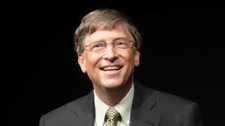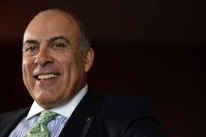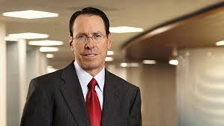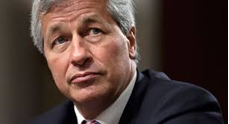
Anybody who is serious about doing well in the business world knows that they need to always be learning from those who have come before them.
We all have read countless business books that each offer their own unique way of selling us on how to prosper in the crazy world of entrepreneurship.
But which of these books are the ones we should really be paying attention to?
The best way to answer that question is by looking at the books that the world’s greatest CEOs are reading. The books that changed their lives after they read them.
These are the 15 books the world’s CEOs want everyone to read.
Tribal Leadership: Levering Natural Groups to Build a Thriving Organization, Dave Logan, John King and Halee Fischer-Wright

Zappos CEO Tony Hsieh says Tribal Leadership “codifies a lot of what we’ve been doing instinctually,” which is another way of saying that it takes things that we do that we can’t quite describe and describes them, or attempts to. Essentially, it urges executives in the C-suite to observe how a company’s employees group themselves naturally, without any top-down directives from management, and to use that knowledge to increase satisfaction and productivity among its workers.
Essentially, it urges executives in the C-suite to observe how a company’s employees group themselves naturally, without any top-down directives from management, and to use that knowledge to increase satisfaction and productivity among its workers.
The Catcher in the Rye, J.D. Salinger

Microsoft co-founder and CEO emeritus Bill Gates holds Salinger’s classic tale of teenage dissatisfaction and angst in high regard, saying that it’s been his favorite book since he was thirteen. Sort of a unique and unexpected choice for one of the most powerful people in the world, it’s safe to say, but Gates has a good point when he says “it acknowledges that young people are a little confused, but can… see things that adults don’t really see.” Like how phony most people are, for starters.
Sort of a unique and unexpected choice for one of the most powerful people in the world, it’s safe to say, but Gates has a good point when he says “it acknowledges that young people are a little confused, but can… see things that adults don’t really see.” Like how phony most people are, for starters.
The Ascent of Money: A Financial History of the World, Niall Ferguson.

Niall Ferguson is a British historian that’s made himself, over the past two decades or so, into basically the go-to global economic historian; his The House of Rothschild covers two huge volumes digging into the history of what is still the most staggeringly wealthy family the world has ever seen.
The Ascent of Money takes a broader, more global view, starting with the clay tokens of Mesopotamia through the development of currency and on to today’s hedge funds (the book predates BitCoin, though). Coca-Cola CEO Muhtar Kent thinks it’s “one of the best” books on economic observations around, and that guy probably knows what he’s talking about.
Coca-Cola CEO Muhtar Kent thinks it’s “one of the best” books on economic observations around, and that guy probably knows what he’s talking about.
The Brothers Karamazov, Fyodor Dostoevsky

Dostoevsky’s last novel is a grand psychological epic considered, since publication, to be a landmark in world literature. Not a weekend read by any means, unless your weekends tend to last about a month, it’s nevertheless one of those pillars of modern culture that anyone who intends cultural literacy should at least take a shot at reading once or twice in their lives. If you can’t do it, hey, you’re far from alone; the modern world is busy and there are a lot of things going on all the time that demand attention. AT&T CEO Randall Stephenson, however, would probably recommend that you give this, his favorite book, at least a decent attempt.
If you can’t do it, hey, you’re far from alone; the modern world is busy and there are a lot of things going on all the time that demand attention. AT&T CEO Randall Stephenson, however, would probably recommend that you give this, his favorite book, at least a decent attempt.
AT&T CEO Randall Stephenson, however, would probably recommend that you give this, his favorite book, at least a decent attempt.
The World is Flat, Thomas Friedman

It doesn’t seem like that long ago that there was a lot of discussion and debate – and a lot of uncertainty – about what the coming of globalization would mean, what its effects would be, and whether or not it was good policy at all for the U.S. to relax trade restrictions and usher in the new business landscape. Whether or not it’s been good policy is still a matter for debate, but the toothpaste isn’t going back in the tube; globalization’s here, and it’s not going anywhere. Friedman’s 2003 book, subtitled
Whether or not it’s been good policy is still a matter for debate, but the toothpaste isn’t going back in the tube; globalization’s here, and it’s not going anywhere. Friedman’s 2003 book, subtitled
Friedman’s 2003 book, subtitled A Brief History of the 21st Century, is a good overview of where we might be going, and one of the titles on the reading list that JPMorgan CEO Jamie Dimon sent to his firm’s interns in 2011.
